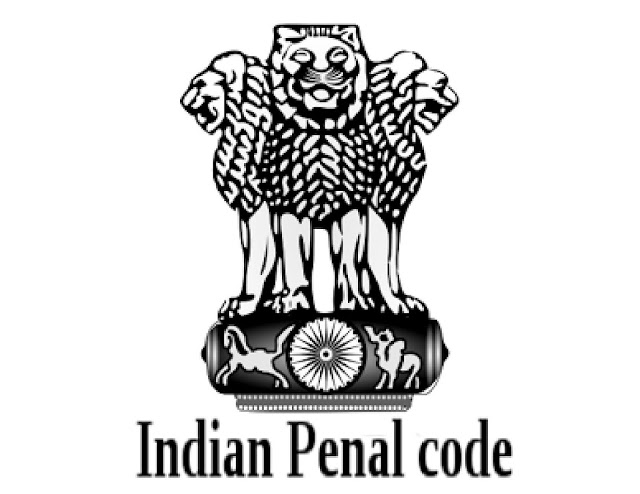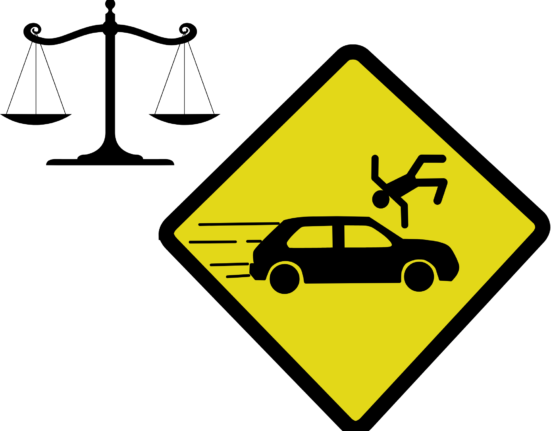Kritika Srivastava, a third-year student at Fairfield Institute of Management and Technology, New Delhi has written this Article on “General Exemption of Private Defence”.
Introduction
Mens Rea and Actus Rea are the two elements of criminal law. A guilty mentality has mens rea, and a guilty act has actus rea. “Actus non facitreum nisi mens sit rea” is a Latin proverb that served as its inspiration. If any of these two components is missing, there is no criminal culpability. The General Exceptions occur when mens rea is not present. Chapter IV of the Indian Criminal Code of 1860 covers them. There are two categories of General Exceptions of Private Defence: justifiable and excusable defenses.
Every person in India has the right to engage in private self-defense against any external force that can cause them harm or injury. In plain English, it denotes the employment of otherwise illegal means to defend oneself or another person, to safeguard property, or to stop any other crime.
It grants everyone the right to defend their body or property from crimes for which they have the right to private defense. However, there is no opportunity to plan a course of action for the protection of the public experts, and the power used is limited to that which is necessary to defend a person’s body or property.
Every Indian citizen has the right to defend themselves from external forces that can cause them harm or injury. In simple terms, it is essentially a right to self-defense. Sections 96 to 106 of the Indian Criminal Code of 1860 reference it. As stated in the Indian Criminal Code of 1860, “Nothing is an offense which is done in exercise of the right of private defense”. This suggests that any hurt or injury inflicted on a person while he is defending himself from an outside force or harm is not a crime.
The word “private defense” is not adequately defined in the penal code. It has grown and changed over time through court rulings. The primary goal of granting this right to every citizen was to eliminate their reluctance to take any action (typically illegal) to protect themselves out of concern for legal repercussions.
Sections related to the General Exception of Private Defence
Section 97- Right of private defense of the body and of Property:
According to Section 97 of the Indian Penal Code, every citizen has the right, subject to certain limitations (discussed in Section 99), to defend his or her own body or the body of another person against any offense affecting the human body and their property, whether it be immovable or mobile, against any act that constitutes robbery, theft, mischief, criminal trespass, or an attempt to commit theft, robbery, mischief, or criminal trespass.
This suggests that helping oneself comes first, followed by helping others in the community, and that helping others is a social responsibility. The obligation to defend others and their property stems from human compassion.
Section 98- Right of private defence against the act of a person of unsound mind, etc:
This Section establishes that the physical or mental ability of the person against whom the right of private defense is exercised is not a barrier. In other words, everyone has the legal right to self-defense against assailants, mens rea or not. The examples given above demonstrate the reality that, even if an attacker is granted legal immunity. This does not lessen the danger and risk that his actions pose. As Law permits the exercise of the right to private defense in such circumstances. Otherwise, it would be pointless and ineffective.
Section 99- Act against which there is no right of private defense
Section 99 outlines the criteria and restrictions on how to use the right of private defense. The clause grants a man a defensive right, not an offensive one. That is to say, if there is a plausible fear of a threat to life or property, it does not arm a man with fire and ammo but instead urges him to help himself and others. The first two articles state that someone cannot use the right of private defense against a public employee or someone acting in good faith while carrying out their legal obligations, as long as their act is not illegal. Moreover, Clause Three restricts the right to private defense if a person can contact a public authority in time.
Also, the right must be exercised proportionately to the potential harm. In other words, there is no right of private defense:
(i)against the actions of a public servant;
(ii)against the actions of those acting under their authority or direction;
(iii)where there is enough time to contact public authorities;
(iv)and the amount of harm that may be caused shall never exceed the harm that may be required for defense.
Public employees’ rights to protection are not unqualified. There are constraints on it. The actions in either of these sections must not be substantial enough to raise the possibility of death or great bodily harm, which would deny one of his right to private defense.
(i)To be eligible for the protections provided by those clauses, a public servant must act in good faith,
(ii) Act in the course of his official duties, and
(iii) have reasonable grounds to believe that the actions were taken by him or on his behalf in the performance of those duties and are not unlawful.
Under this clause, good faith is essential. While one must exercise adequate care and caution in accordance with Section 52 of the code, good faith does not require logical infallibility.
Section100- When the right of private defense of the body extends to causing death
One of the exceptions offered to a person is the right to private bodily defense. If he is threatened with harm to his life or if his life is in jeopardy and the only course of action he can take to protect himself is to harm another person, he is permitted to take such action. Article 21 of the Indian Constitution may also be related to the right to private defense. According to Article 21, everyone has the “Right to life and personal liberty.” If a person has exhausted all other options for self-help, he or she may use force, and IPC Section 100 also broadens the definition of private defense by permitting the attacker’s death.
Section101- When such right extends to causing any harm other than death
If the crime does not come under any of the categories described in the previous section, the right to private defense of the body extends, subject to the restrictions stated in Section 99, to the willing infliction of any damage on the aggressor other than death.
Section102- Commencement and continuance of the right of private defense of the body
The right to privately defend one’s body kicks in as soon as there is a plausible fear that it will be in danger as a result of an attempt or threat to commit an offense, even though the offense may not have been committed. It remains in effect for as long as there is a reasonable fear that the body will be in danger. The perception of risk must be realistic and not irrational. For instance, even if an enemy is carrying a lethal weapon and intends to murder, one cannot shoot him from afar. This is because there isn’t a legitimate fear of attack because he hasn’t attacked you. To put it another way, there isn’t an attack, hence there isn’t a private defense right. Also, the threat must be real and approaching.
Section103- When the right of private defense of property extends to causing death
IPC Section 100 intends to provide the right of private defense to a person’s body, while IPC Section 103 offers the right of private defense to property. Homicide is permitted in cases of robbery, nighttime home invasion, arson, theft, mischief, or house trespass that result in apprehension or serious injury. A person cannot assert a right of private defense in relation to the property over which he does not have possession. The genuine owner does not have the authority to remove or expel a trespasser if, to his knowledge, the trespasser has been successful in establishing his ownership. Only those crimes listed in this section are eligible for the use of this power.
Section 104- When such right extends to causing any harm other than death
If the theft, mischief, or criminal trespass that leads to the exercise of the right of private defense is not one of the offenses listed in the last preceding section, that right does not extend to the voluntary causing of death but does extend, subject to the limitations mentioned in section 99, to the voluntarily causing of any harm other than death to the wrongdoer.
One cannot interpret this clause as granting the accused any additional freedom to exercise their right to a private defense. Anyone who violates the trespasser’s right to private defense by killing him would be in violation of Section 304, Part II. This section follows Section 103 in the same way as Section 101 follows Section 100.
Section105- Commencement and continuance of the right of private defense of property
When there is a legitimate fear that the property is in danger, the right to private property defense kicks in. One can secure aid from the government, recover stolen goods, or exercise the right of private property defense against theft until the criminal has fled with the stolen goods or the right has expired. As long as the perpetrator inflicts or seeks to inflict bodily harm, unlawful restraint, or the threat of imminent death, bodily harm, or immediate personal restraint, the right to private property defense against robbery remains in effect.
Excusable Defences
- Mistake of fact (S. 76 & 79)
- Accident (S. 80)
- Infancy (S. 82 &83)
- Insanity (S. 84)
- Intoxication (S. 85 & 86)
Justified Defences
- Judicial Acts (S. 77 & 78)
- Necessity (S. 81)
- Consent (S. 87-89 & 92)
- Communication (S. 93)
- Trifle Acts (S. 95)
- Duress (S. 94)
- Private Defence (S. 96- 106)
Case Laws:
Jograj Mahto v. Emperor[1]
The Patna High Court observed in Jograj Mahto v. Emperor that Section 99 of the I.P.C. only applies in situations where there is a place to perform an act but the ward has been, in certain ways, illegitimately created. This Section uses language that is “strictly justifiable by law.” The word “strictly,” which the legislators most likely inserted on purpose, indicates that this clause was not intended to apply in circumstances when the act was wholly unjustified. It is not applicable in cases where there is a complete lack of jurisdiction.
Krishna Bhagwan v. State of Bihar[2]
In this case, the Patna High Court ruled that a child who is accused of committing an offense while it is still being committed, or at the time of the decision, has reached the age of seven, maybe sentenced if he has knowledge of the offense and has provided information about it.
Ashiruddin Ahmed vs The Emperor[3]
In this case, the charged Ashiruddin was told by somebody in heaven to forfeit his very own child, aged 4 years. He brought his child to a mosque the following morning, killed him, and then went straight to his uncle. Nevertheless, after finding a chowkidar, he took the uncle beside a tank and told him the tale. The Supreme Court held that the accused can ensure the defense since, despite knowing the concept behind the deed, he had no notion of what was improper.
Mohinder Pal Jolly v. State of Punjab[4]
In Mohinder Pal Jolly v. State of Punjab, there was a dispute about interest for compensation between the laborers and the government. The workers threw bricks at the industrial complex. The industrial facility’s owner arrived and killed one specialist with a pistol after turning around. The judge ruled that by killing the worker, the owner went beyond the scope of his right to private defense. In essence, it was believed that the accused exceeded his standard for private defense when the expired attacked the accused and the accused stabbed him in the heart.
Conclusion
The state grants people the right to ensure and protect themselves by making self-defense a norm of criminal law. The right to a private defense of the body falls under the category of a reasonable defense, where the focus is more on the individual’s performance. The benefit of the behavior outweighs the evil of the offense. Yet, the Courts have been very cautious when granting the defense under Section 100.
The onus is on the accused to show that he utilized his right to private defense. The circumstances that drive persons to commit the offense are evident. When the state is unable to act similarly, the state has granted us a few rights that allow us to protect our lives and our property from impending danger. One may use this privilege to protect another person’s body or property. It can even result in the attacker’s death in some circumstances.
But, in order to take use of this privilege, there must be a reasonable concern or fear of actual or impending danger. The Indian Criminal Code has Section 100, which is of utmost importance. It grants the right to commit murder. The entitlement lays forth a few restrictions that one must follow in order to profit from it. The power used must not only be necessary to fend off the attack but must also be proportionate to the harm done.
The term “body” can refer to one’s own body or another person’s body, while the term “property” can refer to mobile or immovable things that belong to oneself or to any other person. The first rule of criminal law is self-help. To safeguard one’s life, liberty, and property, one must have the right to self-defense at all costs. It is a natural human right. Yet the law is very specific about the kind and amount of force.
The right to private defense refers to the use of force to defend one’s person and property. The term “body” can refer to one’s own body or another person’s body, while the term “property” can refer to mobile or immovable things that belong to oneself or to any other person. The first rule of criminal law is self-help.
To safeguard one’s life, liberty, and property, one must have the right to self-defense at all costs. It is a natural human right. Yet the law is very specific about the kind and amount of force. The right to private defense refers to the use of force to defend one’s person and property.
Also Read: Right to Private Defence (Sections 96-106 IPC), Click Here!
[1]Criminal Revn. No. 143 of 1940
[2] AIR 1989 Pat 217, 1991 (39) BLJR 321, 1991 CriLJ 1283
[3] 1949 CriLJ 255
[4] Equivalent citations: 1979 AIR 577, 1979 SCR (2) 805
Indian Penal Code, Click Here!







Leave feedback about this